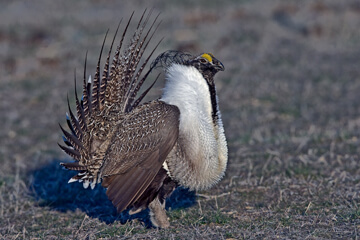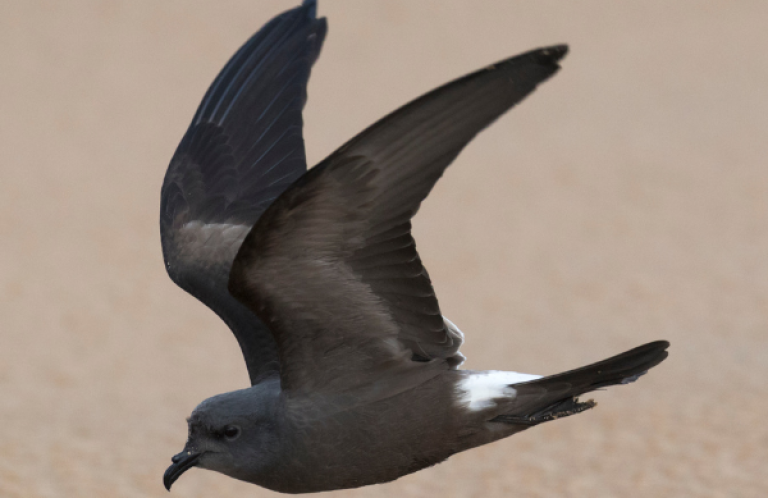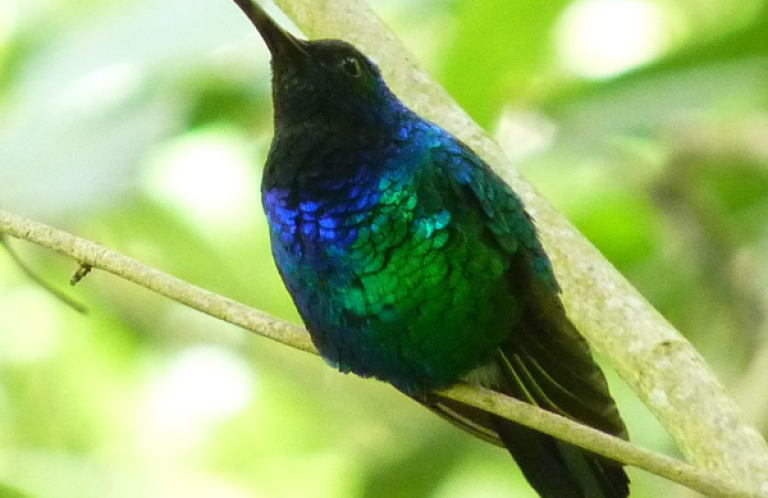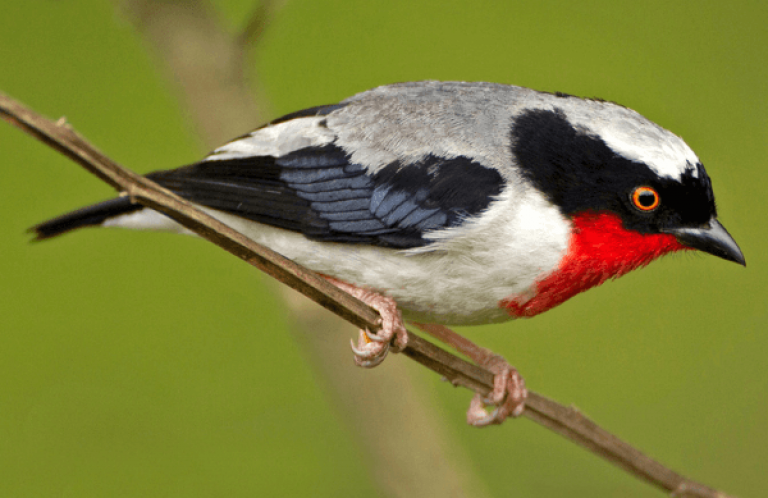Due to Population Decline and Energy Development, Sage-Grouse Listing Called for by American Bird Conservancy
For Immediate Release Contact:
, 202-234-7181 ext.210
BLM Wyoming Greater Sage-Grouse Conservation Plan Deemed Deficient
|
Greater Sage Grouse. Photo: © Alan Wilson |
(Washington, D.C.,
“While there have been legitimate, good-faith conservation efforts undertaken in the last couple of years by federal, state, and private interests to help the Greater Sage-Grouse, by the same token there is also absolutely no mistaking that the path we are on will lead to fewer and fewer birds. More needs to be done. The species needs to be fully protected, and ESA listing is the best way to achieve that,” said George Fenwick, President of ABC.
The Fish and Wildlife Service is reviewing the status of the Greater Sage-Grouse, and is expected to announce its findings at the end of February. The numbers of Greater Sage-Grouse have dropped precipitously – with a loss of more than 30% in the last 25 years, according to recent reports.
ABC is also calling attention to standards that are proposed by state and federal agency conservation plans. “Some standards are quite strong, such as the state of Oregon Sage-Grouse conservation strategy that calls for ‘no net loss of sagebrush habitat’, while other plans fall short” Fenwick said. ABC is concerned that the core area development standards in the Bureau of Land Management’s (BLM) Wyoming Sage Grouse Management Plan are insufficient to ensure stable populations over the long term. The Wyoming plan, which allows for one drilling or wind “pad” per square mile within the core areas, will lead to further habitat loss, fragmentation and degradation of remaining habitat from associated construction of roads. The plan also fails to include a number of core Sage-Grouse habitat areas such as parts of the Powder River Basin.
“The Wyoming BLM issued a conservation plan on January 4th that overlooks key scientific studies that indicate greater protections are needed, and as a result is unacceptable,” Fenwick added. “We can’t possibly be satisfied with a plan that merely slows down the loss of sage-grouse. This simply postpones the inevitable.”
The causes for the decline of sage-grouse are varied, and include the loss or degradation of habitat arising from grazing and agriculture, energy development, and fires that are escalated by invasive vegetation such as cheat grass. Additional threats include mosquito-borne West Nile virus, and collisions with wire fences that the birds cannot see.
”The general idea of protecting core areas for the sage-grouse is sound,” said Fenwick. “To be effective, what’s needed is a comprehensive and region-wide management plan that will protect the species’ entire core habitat, with sufficient buffers around the core areas. To make this happen, and for plans and protections to be strong enough, the Greater Sage-Grouse needs to be listed under the ESA.”
American Bird Conservancy (www.abcbirds.org) conserves native birds and their habitats throughout the Americas by safeguarding the rarest species, conserving and restoring habitats, and reducing threats while building capacity of the bird conservation movement. ABC is a 501(c)(3) not-for-profit membership organization that is consistently awarded a top, four-star rating by the independent group, Charity Navigator.
American Bird Conservancy conserves native birds and their habitats throughout the Americas by safeguarding the rarest species, conserving and restoring habitats, and reducing threats while building capacity of the bird conservation movement. ABC is a 501(c)(3) membership organization that is consistently awarded a top, four-star rating by the independent group, Charity Navigator. See www.abcbirds.org.



















































